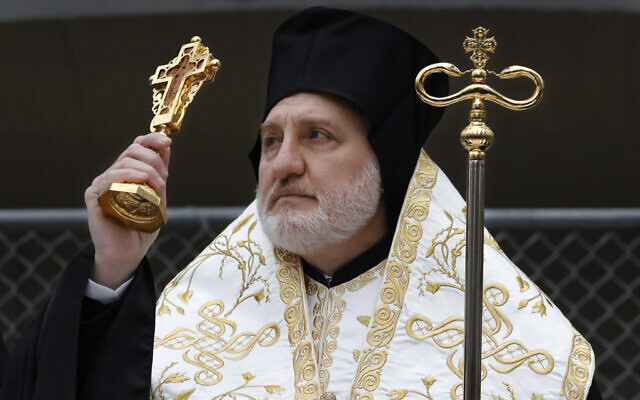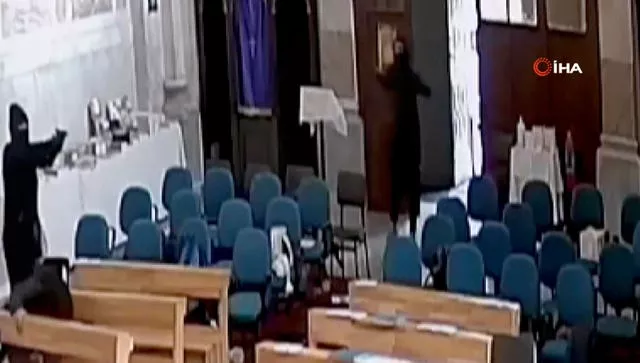
A volunteer police officer told a
Christian singer that she was 'not allowed to sing church songs outside
of church grounds' - before sticking her tongue out at her.
Gospel singer Harmonie London, 20, regularly performs worship music to passing shoppers on Oxford Street and has more than 300,000 subscribers on YouTube.
But she was stopped by a Metropolitan Police special constable and told: 'No miss, you're not allowed to sing church songs outside of church grounds, by the way.'
It
is not entirely clear whether the officer was accusing Harmonie of
breaking the law in the area, which is a council-regulated zone for
busking and street entertainment.
There
are no laws against singing on pavements - and Harmonie said the
incident breached Article 9 of the Human Rights Act which protects
freedom of religion.
As onlookers watched and filmed outside the John Lewis store, Harmonie protested her innocence to the officer, saying: 'You are, you are (able to sing church songs).'
But
the officer continued to insist that Harmonie could not sing 'outside
of church grounds unless you have been authorised by the church to do
these kind of songs'.
Harmonie said 'that's a load
of rubbish, you're allowed' - but the officer then walked away and
another said: 'She's not saying anything anymore, thank you for your
time.'
What is the Oxford Street busking policy?
The
Westminster City Council policy for Oxford Street is that it is among
the busking and street entertainment regulated areas of the West End.
Policy
states that there is a 'light touch licensing scheme' applicable in the
area, which means anyone will 'only be able to busk in designated
pitches'.
They also need to apply for a
licence to perform, keep to terms and conditions of the designated
pitches, and abide by the conditions of their licence.
Busking
is not illegal in England and Wales but there may be certain byelaws or
rules imposed by councils, such as not making too much noise.
Singers
also may to told to avoid blocking pavements, not displaying notices
asking for payment and only busking in certain parts of a town or for a
fixed period of time.
The singer said: 'Are you saying that you don't care about the Human Rights Act?'
She then accused the officer of 'laughing' while she was walking away. The officer then stuck her tongue out.
In
a later video, Harmonie quoted Article 9 of the Human Rights Act 1998
which protects someone's right to freedom of thought, belief and
religion.
Among those hitting out at
the video was former Conservative minister Ann Widdecombe, who called
for the officer to be 'struck off from the voluntary force'.
She
told GB News: 'She really has got the law completely wrong and she was
obviously enjoying herself rather too much, trying to boss this woman
around.
'And there is no basis at all
for saying you can't sing. I could walk down the street singing Onward
Christian Soldiers and I would be committing no offence at all.'
Norman
Brennan, a former police officer and anti-crime campaigner, also
tweeted: 'Folks, this is not a good look. Some of us are trying hard to
help policing get back public lost support respect and confidence and
this does not help.'
And Andrea
Williams, chief executive of the Christian Concern campaign group, told
MailOnline: 'One of my favourite things as I commute to work is to hear
Harmonie's beautiful worship.
'She
blesses tens of thousands of people in the same way and brings harmony
to the streets. We need more of this, not less. It is shocking that she
has been treated like this.'
Former
Metropolitan Police detective Peter Bleksley also commented on the
video, tweeting: 'Lawless Britain. The woman in uniform that is…'
And
former Home Office special adviser Claire Pearsall told TalkTV: 'Really
should the police be going around telling people they can't sing, they
can't pray, they can't think something? Why don't they go and deal with
actual crime?'
Harmonie London has
become a popular Christian street singer in recent years and now has
nearly 300,000 followers on each of Instagram and YouTube.
Some
of her videos have attracted more than four million views. Her latest
clip posted yesterday was entitled: 'Unpaid Volunteer Officer Doesn't
Like Gospel Songs.'
The caption for the
clip, posted at about 6pm, said: 'Special constables are volunteer
police officers who invest their free time to make a real difference to
our city. You will get a tremendous amount of pride from giving back to
the community.'
Scotland Yard confirmed
to MailOnline that the video was filmed on Oxford Street at the
weekend, with officers now 'working to understand the context in which
these comments were made'. The force said an update will be issued 'as
soon as we can'.
Harmonie's clip of the
confrontation has so far attracted more than 5,000 likes and 1,500
comments. MailOnline has contacted the singer for comment.
Westminster
City Council includes the Oxford Street area among its busking and
street entertainment regulated zones of the West End.
Policy
states that there is a 'light touch licensing scheme' applicable in the
area, which means anyone will 'only be able to busk in designated
pitches'.
They also need to apply for a
licence to perform, keep to terms and conditions of the designated
pitches, and abide by the conditions of their licence.
Busking
is not illegal in England and Wales but there may be certain byelaws or
rules imposed by individual councils, such as not making too much
noise.
Singers also may to told to
avoid blocking pavements, not displaying notices asking for payment and
only busking in certain parts of a town or for a fixed period of time.
Special
constables are volunteer officers who have the same powers as a regular
officers and work at least 200 hours annually, equating to 16 hours per
month.
Specials
are based on one of the 12 basic command units across the 32 London
boroughs and also wear the same uniform as regular officers.
Their
duties include responding to 999 calls, foot and vehicle patrols,
tackling antisocial behaviour, road safety initiatives and
house-to-house enquiries.
They also
present evidence in court, help police events and take part in 'hotspot'
operations to tackle underage drinking, criminal damage and public
disorder.
Those involved – who normally
have a full or part-time job as well - can benefit from free travel
within London and a discount on council tax within Greater London.
Other
officers have been criticised for heavy-handed policing of buskers in
recent years - including one in 2021 left covered in blood as he was
held to the ground by five officers following an apparent row over performing in public in Bournemouth.
Also
in 2011, a York busker was fined £200 for allegedly breaking Covid
restrictions by playing the piano because police said it was causing
people to congregate.
And in
Northampton last month, it was revealed that buskers considered a
'nuisance' in the town centre would be told to stop playing under new
council rules.





